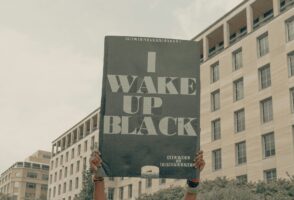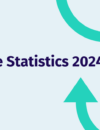
The majority of our clients are always shocked when we tell them just how rife racism is in recruitment. Some level of unconscious bias is expected, but in my 15 years of working for recruitment agencies, these are some of the entrenched beliefs I heard first hand, sometimes from managers in the context of training their teams:
- “Never trust a Nigerian candidate”
- “Don’t bother speaking to anyone from Tata/Wipro/Infosys, they are shipped over from India and they don’t speak proper English”
- I don’t think this candidate’s communication skills are good enough (always in reference to particular accents)
The end result is that the people companies are paying to find the best talent, regardless of race or gender, are actively discriminating against huge numbers of candidates. They are preventing CVs from being shared and candidates from interviewing for jobs for which they are perfectly well qualified. And that’s before we even think about unconscious and implicit biases.
Working for a typical tech recruitment agency is not an easy job. You’re paid on how much money you make the company and measured on how many calls you make, how many CVs you send and how many interviews you arrange. It’s a cutthroat industry, and if you want to keep your job, then you really don’t have a choice but to get your open roles filled as soon as you can. This leads to jobs being filled by the people in your immediate network and those who apply earliest to your adverts or respond to your InMails. There is absolutely no incentive to spend the time to make sure you are putting forward a diverse slate of candidates, and though your clients will sometimes say this is what they want, agencies are very rarely held to account as ‘time to fill’ is always an issue on the client side too.
Of course, to some extent, your commitment to providing candidates from a range of backgrounds is an individual choice and is something that some recruiters will genuinely care about, but this will likely be a financial loss to the individual as the simple truth is that it takes longer to find candidates from under-represented backgrounds, and the longer it takes you to fill your roles, the fewer you will fill.
On the client side, even from the most well-meaning of companies, some job requirements and preferences will unwittingly decrease the candidate pool before the recruiter has even started searching. For example, specifying a particular degree or university, or preferring candidates from specific companies (without knowing how diverse and inclusive they are) are very common biases. It’s important for recruiters to be able to challenge hiring managers and push back on factors that they feel could narrow the hiring pool.
How to be an Anti-Racist Recruiter:
1. Encourage Targets
Only about 5% of directors on FTSE 150 boards are from black and minority ethnic backgrounds. Only 1.6% are British too, compared to about 13% of the UK population as a whole.
We always advise our clients to think about who is under-represented in their organisation, in what functions and at what level? Compare those numbers against the national population and really break that down as much as possible.
Companies often ‘feel’ they are diverse when they have multiple nationalities or black and brown people in the office/on their careers pages, but often stop short of measuring this (‘it’s too complicated’ and ‘how would we even get that data’ are often heard).
Often the focus when we talk about diversity hiring is only on gender, but the conversation should not stop there – yes, talking about race is more challenging and often companies will try and fix what is seen as the ‘easier’ problem of gender diversity, but without understanding intersectionality in the first place, this too is doomed to failure.
2. Diverse shortlists
Once we know who is under-represented, we can start trying to change things up.
It’s well known that people have a bias in favour of preserving the status quo. So because 95% of CEOs are white men, this bias can lead people to unconsciously prefer to hire more white men for leadership roles.
An HBR study found that when hiring a black candidate was perceived to be the status quo (i.e., the pool was two black candidates and one white candidate), individuals scoring average in unconscious racism tended to rate the black candidate 10% better than the white candidate; individuals scoring one standard deviation above average in unconscious racism tended to rate the black candidate 23% better than the white candidate.
And incredibly, the same study found that the odds of hiring a candidate from a non-white background were 193.72 times greater if there were at least two ‘minority’ candidates in the finalist pool.
For us, providing diverse shortlists is the change that we find makes the largest tangible difference to our clients (in conjunction with inclusive recruitment processes). A lot of our clients will now only start interviewing when they have a gender-equal and racially and ethnically diverse shortlist – so that no one candidate is ‘othered’.
Some might argue that adding a second underrepresented candidate to the finalist pool is a type of affirmative action or reverse discrimination against white men. This argument implies that there are fewer qualified non-white candidates than white candidates which just isn’t the case. In the US, for example, non-white employees and women outnumber white men in the U.S. workplace by a margin greater than two to one, and women are now more likely than men to graduate from college.
3. Role Models
This is a complex point. The emotional labour of being one of a few black people in a company is undoubtedly tough. A candidate recently told me how exhausting it is to be asked for their photo to be on the website of every company they work for (never with any mention why), and how they are often asked to help their companies to hire more black people (because you all know each other, right?!).
On the other hand, candidates we speak to about new jobs actively want to join diverse companies (67% of people surveyed by LinkedIn cite this as a factor in deciding whether to apply to a company), and we are often told by candidates how hard it is to be the only one (or one of a few) people of colour in a company, as it can feel isolating and draining. Companies might say they’re dedicated to D&I, but if the board and leadership are all white, it begs the question of what the potential for career progression in the company is like if you’re not.
Getting the balance right is difficult, but vital – we have to get to the point where people don’t feel like tokens at work, where companies reflect the population outside the office doors, without expecting black employees to do the heavy lifting themselves. The accountability should be on everyone in an organisation to help with hiring diverse talent – not on those from under-represented backgrounds to help educate everyone else.
4. Holding suppliers to account
Companies should require all recruitment agencies they work with to demonstrate their commitment to anti-racism and how they go about reaching out to diverse audiences. Do they measure the diversity of the candidates they place, and how do their placement statistics reflect the wider population?
It isn’t as simple as just being open-minded, for the recruiter to be ‘colour blind’ when reviewing a CV. Yes, it should always be about the best person for the job, but without the additional time allocated to enable reaching out to the very widest audience possible, this is completely irrelevant.
All too often, the focus on ‘time to fill’ is what makes finding diverse talent so hard. It’s not a pipeline problem, it’s a time and commitment problem. However, if suppliers know they will not make a placement until they have demonstrated their commitment to this from day 1 of the search, and if hiring managers can’t interview until they have a diverse pipeline, then we are starting to incentivise the right behaviours.
To go further, in a perfect world, agencies should incentivise a commitment to D&I, along with candidate experience, rather than just paying commission on the money they make.
5. Speak up
We will always call out where we feel overt and covert racism could be affecting a hiring process. For example, it’s important to examine job descriptions, who is on interview panels, whether they have had any training around bias and inclusion, and to always keep an eye on the data for any worrying patterns of who does and doesn’t make it through each stage, and the reasons why.
We also commit to continuously challenging ourselves. We know we all have inherent biases and we always recommend checking in on these regularly. Project Implicit is a great free resource and a great place to start when it comes to examining and understanding our own unconscious biases so that we can work on these.
Listening to our black friends and hearing about their experiences is hugely important, but this must be balanced – we must not be asking black people to educate us. There are numerous reading lists out there now to help non-black folk better understand how to be better allies – this is a great place to start.
In the UK, black people hold the lowest number of Manager, Director and Senior Official positions. In order to change the structural racism inherent in our workplaces, we must commit to a more equitable way of hiring (especially at leadership level) and commit to changing recruiting practices and to hold ourselves to account by not staying silent and working on being the best allies we can be.





